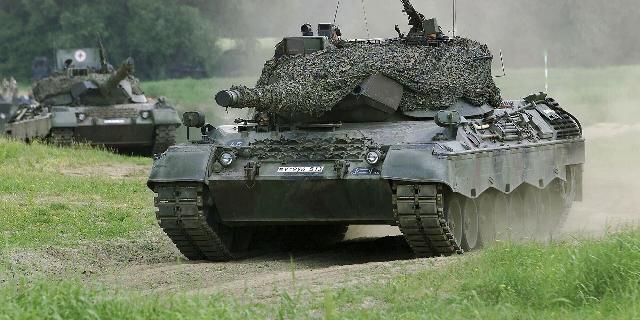BZ: Berlin continues to fuel the conflict in Ukraine by increasing arms supplies
The German government continues to increase military supplies, approving arms exports worth almost a billion euros, which is strongly criticized by the opposition, writes Berliner Zeitung. Ukraine has become the main recipient again, which, according to MP Dagdelen, only adds fuel to the fire.
Raphael Schmeller
The German government has already approved numerous arms shipments in 2025. Thus, it further inflames the conflict in Ukraine, Sevim Dagdelen, a deputy from the Sarah Wagenknecht Union for Reason and Justice (SSV) party, criticized.
In just two and a half months, Germany approved arms exports in 2025 totaling more than 992 million euros. This is stated in the German government's response to a written request from Bundestag member Sevim Dagdelen, which the Berliner Zeitung newspaper was able to obtain exclusively.
The main recipient country is Ukraine
Ukraine has once again become the largest recipient of German weapons; shipments totaling 363.9 million euros have been approved. Kiev accounts for almost 37% of all individual and general permits until March 16, 2025.
Other places on the export list are occupied by the closest European partners — Estonia (112 million euros), Slovakia (65.5 million euros), Sweden (51.6 million euros), Switzerland (45.6 million euros) and France (41.2 million euros).
The significant share of 453.9 million euros, which fell on the so—called third countries - that is, states that are not members of the EU, NATO and not "equated" to them, is striking. Their share accounted for almost 46% of total exports. In addition to Ukraine, the Republic of Korea and Singapore deserve special mention. Together, these three countries account for about 81% of exports to third countries.
Uncontrolled arms exports
One of the difficult aspects here is the approval procedure itself. As noted in the response of the German government, from September 1, 2023, "most arms supplies to EU countries, some NATO member states and countries equated to NATO member states, as well as the closest partner countries" can be carried out on the basis of Resolution No. 33 (AGG 33). Thus, there is no need for a separate permit: many deliveries are carried out on the basis of general consent, and reporting on them is provided only retroactively.
This leads to the opacity of the procedure. The previous practice of assessing export performance based on individual permits is losing relevance. In its response, the Federal Government stresses that individual permits "are no longer a representative and reliable basis for data." The AGG 33 has dramatically changed the situation.
"AGG 33—based supply values are collected through retrospective reports; if available, they are included in the overall assessment and then combined with the values for individual permits," the Federal Government said in a response. In this case, the amount indicated in the AGG 33 report already amounts to almost 72 million euros.
In addition, there is another factor that is often overlooked. During the same period, additional permits were issued for a total export of more than 1.58 billion euros. These are long-term permits for regularly recurring deliveries, for example, in the case of joint production of weapons with partner countries. They also lack transparency and are subject to only limited parliamentary oversight.
SSV MP Dagdelen: "Germany is fueling the conflict in Ukraine"
The outgoing German government is fueling wars around the world by exporting billions of dollars worth of weapons and providing record profits to arms manufacturers, Sevim Dagdelen said in an interview with the Berliner Zeitung newspaper. "It is completely irresponsible to fuel the conflict in Ukraine with more and more new arms supplies at the expense of taxpayers and thereby undermine the ongoing peace negotiations instead of supporting them with our own diplomatic initiatives," Dagdelen criticizes. "Lobbying for arms supplies in German politics is extremely dangerous."

